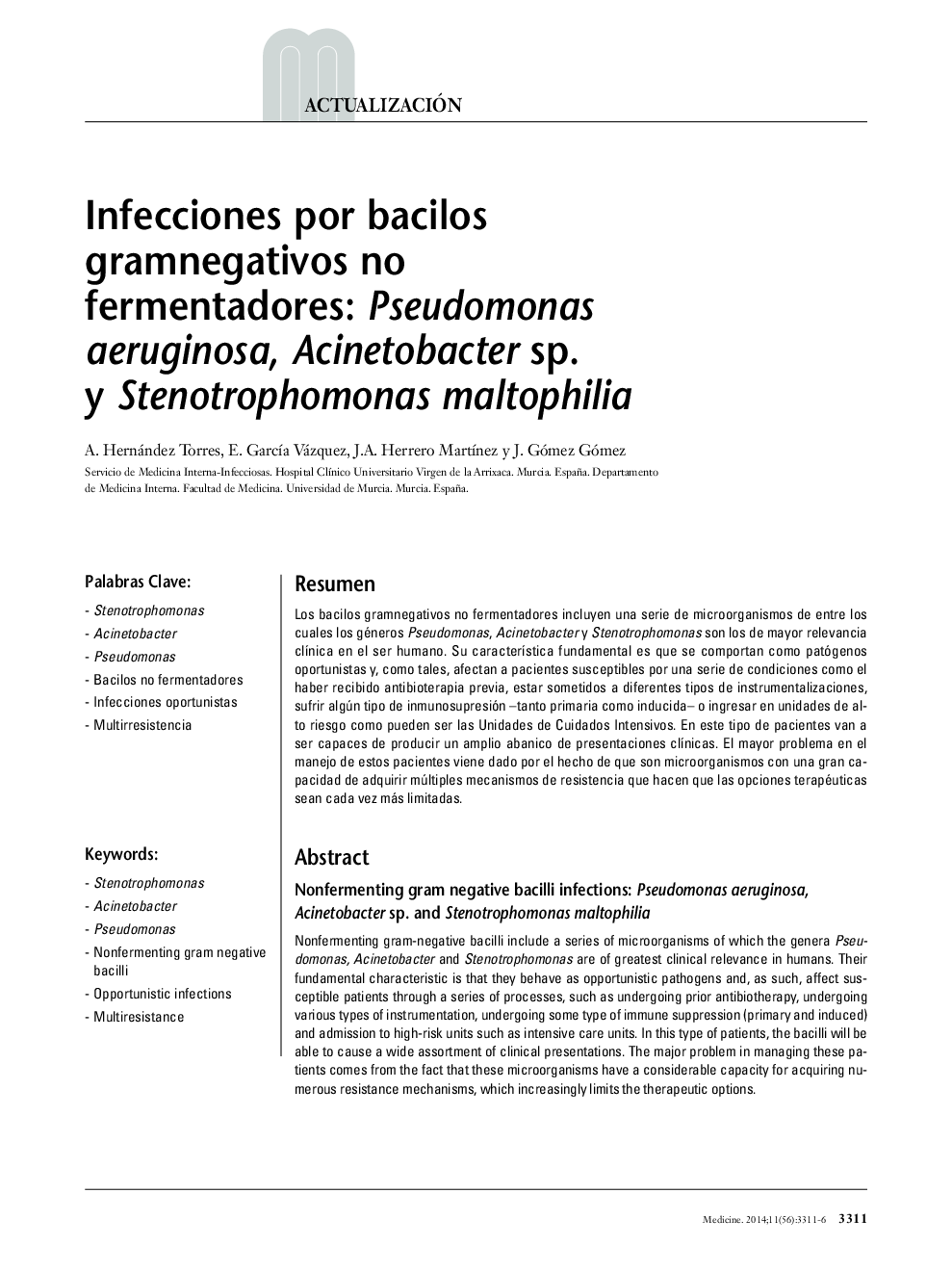| Article ID | Journal | Published Year | Pages | File Type |
|---|---|---|---|---|
| 3807048 | Medicine - Programa de Formación Médica Continuada Acreditado | 2014 | 6 Pages |
Abstract
Nonfermenting gram-negative bacilli include a series of microorganisms of which the genera Pseudomonas, Acinetobacter and Stenotrophomonas are of greatest clinical relevance in humans. Their fundamental characteristic is that they behave as opportunistic pathogens and, as such, affect susceptible patients through a series of processes, such as undergoing prior antibiotherapy, undergoing various types of instrumentation, undergoing some type of immune suppression (primary and induced) and admission to high-risk units such as intensive care units. In this type of patients, the bacilli will be able to cause a wide assortment of clinical presentations. The major problem in managing these patients comes from the fact that these microorganisms have a considerable capacity for acquiring numerous resistance mechanisms, which increasingly limits the therapeutic options.
Keywords
Related Topics
Health Sciences
Medicine and Dentistry
Medicine and Dentistry (General)
Authors
A. Hernández Torres, E. GarcÃa Vázquez, J.A. Herrero MartÃnez, J. Gómez Gómez,
